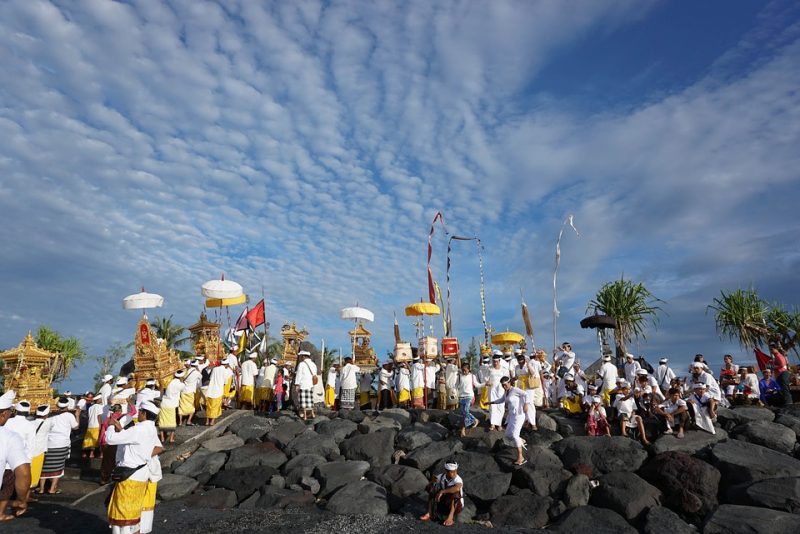Indonesia has been a world favourite holiday destination for decades, with tourists from Australia and Southeast Asia mainly flocking to the resort island of Bali. But with a string of government campaigns, the industry is expected to diversify quickly in the coming years.
Already the benefits of these changes can be seen, with foreign visits to Indonesia growing 19.34 percent in the first quarter of the year compared to the same period a year earlier. Meanwhile, Thailand, with which Indonesia has always competed with for tourist dollars, grew just 6.97 percent.
New trends are driving this rapid growth, particularly a rise in Indian tourists, who are now outpacing Japanese and British visitors, a renewed focus on events and the development of the local halal tourism industry.
The rise of Indian tourists in Indonesia
Indonesia doesn’t boast just exquisite sceneries, but also diverse, rich cultures across the archipelago which are beginning to draw tourists looking for an experience – not just a beach holiday. Cultural tourism is growing to become a major interest of local tourists as well as foreign visitors.
Expedia India’s Head Marketer Manmeet Ahluwalia told CNN Indonesia at least 36 percent of young couples prefer to spend vacations in places which offer cultural experiences, especially Indonesia.
Expedia India conducted a survey of millennial travellers from India and found that 34 percent chose exotic and diverse destinations including Chiyoda and Honshu Island in Japan, Jeju Island, Busan and Suncheon in South Korea and Indonesia’s West Sumatra Islands.
An influx of Indian tourists to Indonesia follows a new visa on arrival regulation.
“Now Indonesia is a popular destination for Indian travellers, especially with the new visa regulation that makes everything easier,” Shelly Chandhok, Country Manager of the Visit Indonesia Tourism Office in Mumbai, told Voyager’s World.
Indian tourists visiting Bali from January to May this year increased 32.27 percent from the same period a year earlier.
Bali’s Regional Tourism Development Head Anak Agung Gede Yuniartha Putra pointed to newly introduced direct routes between Denpasar and Mumbai.
“According to the Indian Embassy, only 10 percent of Indian tourists want to go to Jakarta while the remaining 90 percent wanted to visit Bali,” Putra said.
Event tourism helps boost the number of foreign tourists
A Ministry of Tourism initiative to hold regular tourism events, with a focus on marketing and promotions, has also helped to boost the rates of foreign tourists.
“To hit the marketing target, tourism promotions need to be intensified. For marketing strategy we use the DOT (Destination, Original and Time) approach and the BAS (Branding, Advertising and Selling) approach,” Deputy of Tourism Development of Archipelago Tourism Esthy Reko Astuti told CNN Indonesia.
Astuti also stresses the importance of marketing past, present and upcoming events throughout the year.
Minister of Tourism Arief Yahya said annual international events are effective in increasing tourist numbers as well as helpful for tourists planning future visits.
One success operators hope to replicate is the international bike race Tour de Flores which has seen tourism rise in East Nusa Tenggara. The event was officially recognised by Union Cycliste Internationale, the world governing body for cycling, and trended on social media for a full week.
Halal tourism, the next big thing?
Halal tourism – holidays and vacations tailored for Muslim families who abide by Islamic law – is tipped to be Indonesia’s next big drawcard.
Halal tourism operators from ten countries flocked to the second Halal Tourism Business Meeting at Balairung Matraman Hotel in East Jakarta on June 10. The meeting saw the best in the industry gather to share strategy and knowledge in an industry predicted to reach Rp.4 billion (US$298,000) in Indonesia this year – double the revenue of 2016.
The meeting was welcomed as further momentum in promoting halal tourism in Indonesia, as well as building up the country’s general tourism portfolio.
The recent visit of Saudi Arabia’s King Salman, and more importantly the last minute extension of his stay for extra holidays, caught the attention of the Islamic world and has boosted Indonesia as a world class halal destination.
Indonesia’s reputation in halal tourism has been recognised globally after winning 12 out of 16 awards at the World Halal Tourism Awards 2016 in Abu Dhabi.
The Crescent-Rating Global Muslim Travel Index, which tracks the performance of the industry across 100 destinations, saw strong potential in Indonesia’s halal tourism industry. Globally, the growth of the Muslim market is predicted to hit US$2.6 trillion, while the number of Muslim tourists is projected to increase by 9.1 percent this year.




